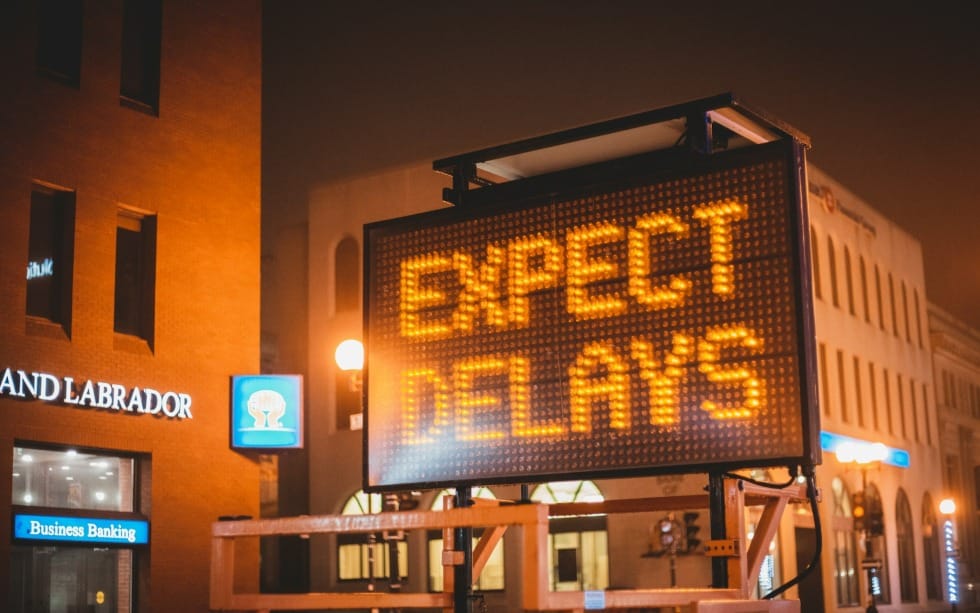Why God's Delays Are Better Than Our Quickest Plans
Do you get easily impatient with God? Do you struggle when it feels like he's not answering as quickly as you would like? If so, here are some words of encouragement.

Have you ever had someone tell you God would do something, but he didn’t?
If you’re like many Christians who have gone through hard times, you’ve probably had your share of individuals who have come up to you and said, “God is going to heal you,” “I am confident God is going to get you that job,” or “I am certain this suffering you face will not last.” Sometimes, these statements prove true, but many times, they do not, prompting us to question what went wrong.
Thankfully, Jeremiah 29 provides some wonderful insight on this matter. This passage includes a letter written during the Babylonian exile, which began in 597 BCE when Nebuchadnezzar of Babylon captured Jerusalem and deported many Jewish leaders and elites. One reason for this letter was false prophets who “were giving the people false assurances of a speedy return to their land.”[1] They did this because they knew this was what the people wanted to hear.
But that’s when Jeremiah sends them a letter. “The letter is carried from Jerusalem to Babylon by a traveling merchant or a Babylonian messenger,”[2] and it says these words:
4 This is what the Lord of Armies, the God of Israel, says to all the exiles I deported from Jerusalem to Babylon: 5 “Build houses and live in them. Plant gardens and eat their produce. 6 Find wives for yourselves, and have sons and daughters. Find wives for your sons and give your daughters to men in marriage so that they may bear sons and daughters. Multiply there; do not decrease. 7 Pursue the well-being of the city I have deported you to. Pray to the Lord on its behalf, for when it thrives, you will thrive.”
8 For this is what the Lord of Armies, the God of Israel, says: “Don’t let your prophets who are among you and your diviners deceive you, and don’t listen to the dreams you elicit from them, 9 for they are prophesying falsely to you in my name. I have not sent them.” This is the Lord’s declaration.
10 For this is what the Lord says: “When seventy years for Babylon are complete, I will attend to you and will confirm my promise concerning you to restore you to this place.
This advice was completely different from what the false prophets claimed. Rather than tell them to resist Babylon and prepare for a quick rescue, God, through Jeremiah, tells them to settle in, build families, and pursue the well-being of the very people who had placed them in exile. They were to do so because their well-being depended on it. John Goldingay writes, “The difference between Jeremiah and other prophets is not over whether Yahweh will break Babylon and bring the exiles back but about the time scale.”[3]
God promises deliverance, but not at the speed of the false prophets. And this brings us to Jeremiah 29:11, that famous verse that hangs in many Christian homes today. It says, “’For I know the plans I have for you’—this is the Lord’s declaration—'plans for your well-being, not for disaster, to give you a future and a hope.’”
Unfortunately, many today interpret this verse in the spirit of the false prophets. They view it as a sign that God’s plans for those who follow him will always result in prosperity and blessing. But a broader look at this passage tells us otherwise. Not only would they remain in captivity for 70 years—which was longer than most would be alive—but they would also wait approximately 600 years for their promised Messiah to be born.
In Jesus, we see the total fulfillment of Jeremiah’s letter. He is the one who brings eternal prosperity, reconciliation, and the ultimate restoration of humanity's relationship with God. Jesus embodies the plans for well-being and redemption that God declared through Jeremiah.
Often, in our haste to get ahead of what God is doing, we like to insert our timeline on God’s activity. We assume we know what is best, so we declare the sick healed, politicians elected, and financial blessings received. Then, when these do not come to pass, we lose faith in the God who never made the promises we forced upon him.
While it’s tempting to always want to avoid tough situations and escape “exile,” Jeremiah 29 teaches us that sometimes the best thing we can do is settle down, plant deep roots, seek the good of those who oppress us, and trust that we do not have to know God’s full timing.





